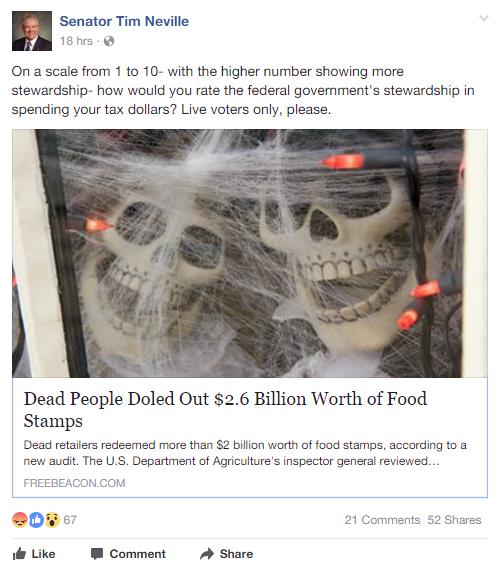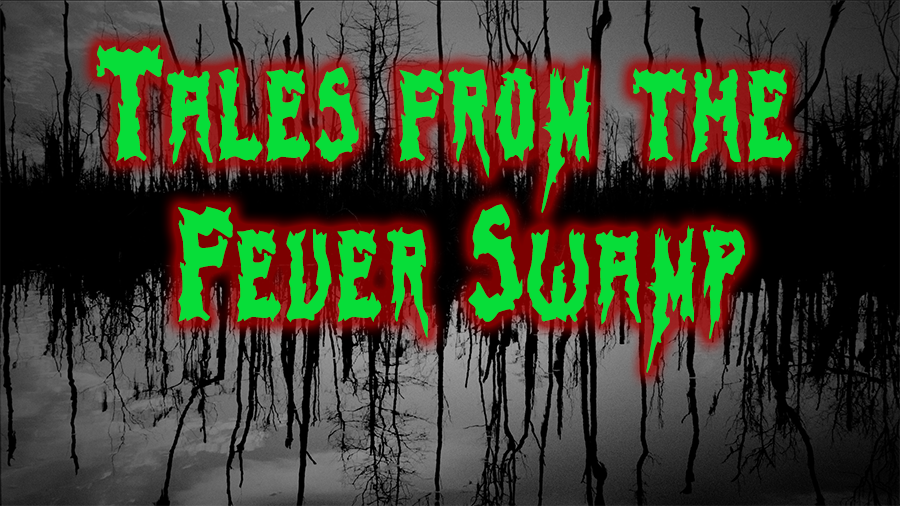My colleagues and I, in reporting about the phenomenon of fake news on social media, have highlighted the propensity of partisan publications to use false or misleading headlines as a propaganda tactic.
As an example, I ran across this post a couple weeks ago from Republican State Sen. Tim Neville (R-Littleton). The article’s headline is a profound misreading of the contents of a report by the USDA regarding potential fraud in the SNAP (food stamp) program.
The first and most blatant falsehood is that dead people “doled out” food stamps. Both the article itself and the USDA report contradict the headline. They did not “dole out” food stamps; they redeemed them.

That’s not the only thing wrong with the headline. The number 2.6 billion is also a falsehood. While the report does state that 3,394 retailers who redeemed 2.6 billion in SNAP benefits were reviewed, it did not find that they were all committing fraud. In fact, many of the retailers had merely committed clerical errors, and others were businesses being run by spouses or children of deceased owners who had simply not updated their paperwork.
Contrary to the implication by Neville that this report proves government is badly run, it actually proves that the government has an active set of checks and balances that are designed to weed out fraud and misuse of SNAP benefits. In other words, it supports the idea that government is doing its job fairly well and is working to correct problems with the system. As a result of the report and the agency’s subsequent response, only 122 of the 3,394 stores identified were removed from participation in the program.
The moral of the story? Read the story. Follow the links. Take the time to verify the information. Don’t assume that because someone you may respect (and who, presumably, should know better) posts something on Facebook, that it is true.




